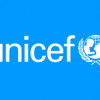The purpose of the Education Economist is to support the ministry of education to conduct insightful research and analysis on various aspects of education policy, financing, and economic impact. The economist will provide support to government to offer evidence-based recommendations and contribute to the development of effective education strategies and interventions. The economist will be domiciled at Dodoma in the MoEST office.
Scope of Work:
2.1 Research and Analysis
• Conduct rigorous research on education-related topics, including education financing, intervention cost-effectiveness, human capital development, and educational outcomes.
• Analyze data and economic indicators to gauge the impact of education policies and programs on student achievements, labor markets, and overall economic growth.
• Stay abreast of the latest research and literature within the realm of education economics and remain informed about pertinent policy advancements. 2.2 Policy Development and Recommendations
• Provide evidence-based recommendations to governmental bodies, non-profit organizations, and educational institutions regarding education financing, resource allocation, and equity concerns.
• Evaluate the efficacy of existing education policies and propose innovative strategies aimed at enhancing educational systems, minimizing disparities, and improving learning outcomes.
• Collaborate with policymakers and stakeholders to devise education frameworks that harmonize with economic objectives and foster sustainable development.
• Provide support to senior government policymakers and decision-makers through data analysis and timely reporting. 2.3 Project Evaluation and Impact Assessment
• Conduct both ex-ante and ex-post evaluations of education policies, programs, and interventions to ascertain their cost-effectiveness and long-term impact.
• Employ quantitative and qualitative research methodologies to assess the efficiency and equity of education investments, pinpointing areas ripe for enhancement.
• Provide recommendations for the monitoring and evaluation of education programs, ensuring accountability and continuous improvement. 2.4 Knowledge Sharing and Capacity Building
• Support the government in publishing research findings, policy briefs, and other crucial documents to contribute to the progression of knowledge in the domain of education economics.
• Disseminate research outcomes to a diverse array of stakeholders and partake in knowledge-sharing initiatives such as workshops, seminars, and conferences.
• Provide technical expertise and capacity-building support to education professionals, policymakers, and organizations involved in endeavors aimed at reforming the education sector.
More Information
- Address DSM,DSM,DSM, ,TZ
- Salary Offers Negotiable TZS Negotiable Month



